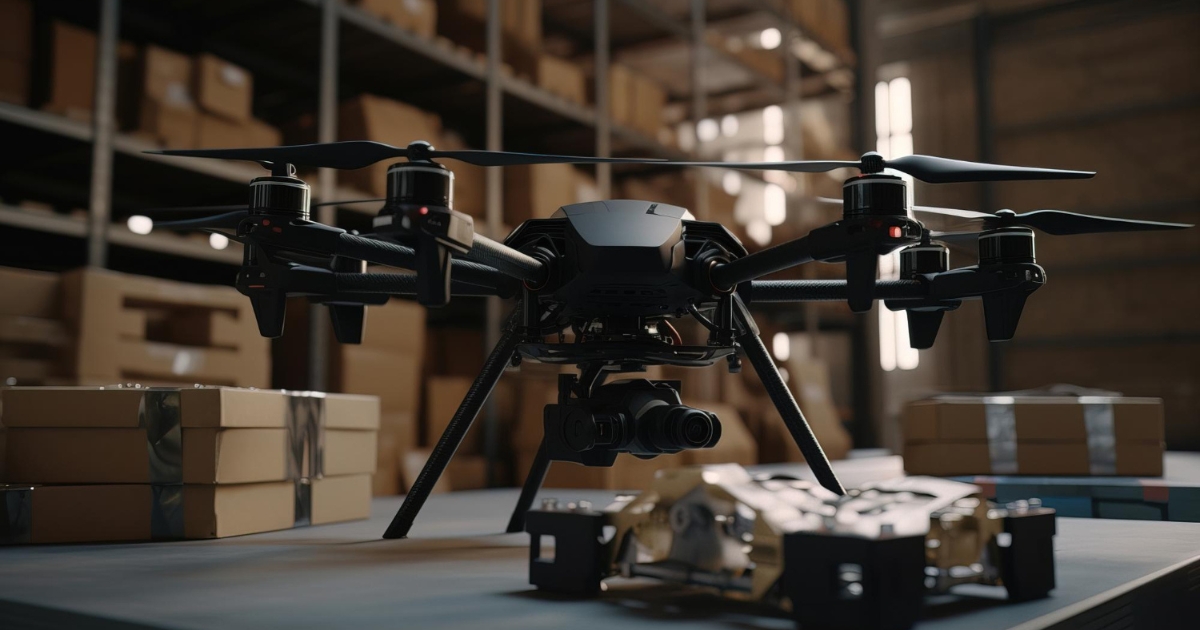Indian defence sector stands as one of the world’s most advanced military services with vast defence personnel actively serving and in reserves. With more developments in political and social affairs, the threat from other nations is on the rise. However, the Indian defence service is well-prepared. India takes the third position for being the world’s third largest military spender and its defence budget covers 2.15% of the country’s GDP.
What is Defence ERP?
Enterprise resource planning software is a robust system that can handle all the processes of aerospace and defence manufacturing. It has modules that can efficiently manage project requirements and regulatory compliance. Cloud ERP software is a modern solution for businesses aiming to stay competitive and achieve faster growth.
Defence ERP is an expert in managing functions such as engineering and engineer-to-order aspects of the products, configures price quotes, back-end financials and reporting. It is efficient enough to adapt to the changing needs of the organisations. Plus, it can be highly customized for organisations with different requirements.
Quality and Regulatory requirements are the two major requisites of the defence manufacturing industry. In addition, safety and precision are also crucial factors in this industry. The aerospace and defence industry is a complex sector which has a huge opportunity for automation and digitisation.
Overview of Defence Equipment Industry in India
The Defence equipment industry is comprehensively involved in the production of weapons, systems, platforms, and equipment required for military activities. 80% of India’s domestic defence industry is under government ownership. A new defence procurement, acquisition and manufacturing policy ensures to minimise imports and support domestic manufacturing. India accounts for 11% of the Arms sales worldwide.
The government has prioritized the Defence and Aerospace sector under the ‘Aatmanirbhar Bharat’ or Self-Reliant India Initiative, emphasizing the development of domestic manufacturing capabilities alongside a robust research and development framework.
Currently, India excels in the design and development of defence and aerospace products. The defence manufacturing industry produces the following equipment listed below :
- Tanks
- Armoured vehicles
- Fighter aircrafts
- Helicopters
- Warships
- Submarines
- Missiles
- Electronic equipment
- Special alloys
- Special purpose steels
- Variety of ammunition
Government Schemes of Defence Equipment Industry
Government have taken many initiatives to support the defence equipment manufacturing industry. Let us explore some of the major schemes and investment opportunities devised by the government.
- DRDO’s Technology Development Fund (TDF) for MSMEs and startups to indigenize cutting-edge defence technologies of which 164 Technologies are being indigenized, $30.8 Mn funds sanctioned, 1886 experts and 5270 companies engaged.
- SRIJAN portal launched to promote indigenization. 27130 defence items and 19509 defence items have been displayed on the portal for indigenisation.
- Under the Atmanirbhar Bharat Initiative, four positive indigenization lists of 411 products have been passed by the Department of Military Affairs and Ministry of Defence to be manufactured domestically for the defence sector, instead of being sourced via imports.
- The government has declared the establishment of two specialized Defence Industrial Corridors in the states of Tamil Nadu and Uttar Pradesh. They will serve as hubs for defence manufacturing, capitalizing on the existing infrastructure and skilled workforce in these regions.
Companies Manufacturing Defence equipment in India
The private companies have made a significant contribution to the design and development of warfare equipment in India. They are the major contributors to military equipment. Further, some of the organisations are well-known multinational companies. All these firms are involved in the production of Ammunition to shipbuilding, from small devices to bulletproof armoured carriers.
Government companies manufacturing Defence Equipment
- Hindustan Aeronautics Limited
- DRDO (Defence Research and Development Organisation)
→Both companies are base developers of military equipment. Plus, the ordnance factories work alongside to manufacture quality equipment.
Private Defence Equipment manufacturing companies
Some of the private players manufacturing defence equipment are listed below :
- TATA
- Mahindra
- Reliance
- Adani
- Larsen and Toubro
- Ashok Leyland
- Kalyani Raphael Advanced Systems
- Alpha Design Technologies Pvt Ltd.
Data acquired from April 2023 states that 606 industrial licenses are issued to 369 companies working for the defence sector.
Challenges faced by the Defence equipment industry
In today’s global landscape, supply chain issue is ongoing which is impacting all the business sectors. Apart from that, there are also other challenges that are hindering the sustained production of defence equipment. Let us discuss more.
1. Lacking visibility of processes
The defence industry involves complex operations with innumerable specialized suppliers, manufacturers and regulators. With the ongoing supply chain issue, it becomes tiresome to get visibility across the system.
2. Industry-wide spare parts shortages
Due to inconsistencies and lags in the parts shortages, it becomes difficult for the timely production and delivery of the product. In particular, the aircraft deliveries are delayed often owing to persistent spare part shortages.
3. Inflation and economic uncertainties
Inflation is a big crisis the world is facing currently. As a result, the cost of the raw materials is high. When the materials are high priced and during economic uncertainties, the defence ministry is forced to cut down its budget.
4. Changing Technological Landscape
Currently, the modern warfare scenario is different. Automation and technologies such as AI(Artificial Intelligence) have become the new norm. AI has immensely helped in making faster business decisions. The risk here is that the technological landscape is constantly evolving, so innovation in this phase is difficult.
All these challenges can be addressed with the best business management software. Enterprise resource planning software can efficiently manage the defence equipment industry with its advanced functionalities for supply chain management, financial management, inventory management, quality and compliance management.
Key Features of ERP for Defence Equipment Industry
ERP aids in streamlining all operations, manages inventory, handles quality control and regulatory compliance, and improves the productivity and efficiency of the industry. It is designed to provide a centralized platform for all business functions to seamlessly operate. ERP has on-premise and cloud-based solutions for businesses.
1. Financial Management
The defence industry deals with large contracts and complex project budgets, so financial tools are essential. ERP system offers comprehensive financial management features for accounting and budgeting support, and financial reporting capabilities.
2. Quality Management
Quality is an essential factor for defence and aerospace products. Special emphasis on quality is given to this factor due to the critical nature of the products. Quality management features in defence ERP include non-conformance tracking, statistical process control and quality audits.
3. Supply Chain Management
For aerospace and defence manufacturers, inventory and supply chain management is crucial. The expert management of both will ensure the timely delivery of defence products and services. ERP software offers advanced supply chain features including inventory control, demand forecasting, procurement and logistics management.
4. Production and Operations management
In defence companies quality and adhering to precise specifications are crucial. ERP can effectively help by providing features to manage production processes, scheduling, and capacity planning. Functionalities such as tracking work orders and progress in the manufacturing cycle are also available.
5. Compliance and security
Compliance and security are critical for the defence manufacturing industry. With ERP, numerous regulatory requirements can be abided and it helps in maintaining stringent protocols. Some of its features include audit trails, access controls, and data encryption.
6. Human Resources Management
The skilled workforce is also a significant factor for the defence industry. ERP for defence manufacturing has capabilities which aid in training, recruiting, development, performance management and payroll processing.
7. Engineer and configure to order
Tailored projects can be generated for all ‘Engineered to Order’ tasks, utilizing a comprehensive product configurator to generate a precise bill of materials from a sales order. The cost and progress of engineering projects can be meticulously tracked, and all pertinent information relevant to the project. The information includes engineering schedules, purchase orders, MRP, and labour(all these are interconnected).
8. Document Management
All documentation is seamlessly managed and recorded in the ERP securely. Documentation which includes contracts, technical drawings, designs, and proposals relevant to the customer, supplier or partner can be stored safely. Further, the integration with Outlook enables users to archive email correspondence from Outlook into the corresponding contact or project records.
9. Serial and Batch tracking abilities
A unique identification number can be allocated to all goods inward and finished goods with serial and batch tracking features. This assists in the traceability and real-time visibility of the product in the production lifecycle and supply chain system.
Future Scope for the Defence Manufacturing Industry
Defence equipment’s design and development capabilities are well-known to the world. Almost 100 companies from India are exporting aerospace and defence products. The increase in defence exports and the steady growth of the defence equipment manufacturing sector is the result of the Make in India initiative. The government is offering full support to make India a Defence equipment production hub.
- By the year 2025, the government of India estimates to achieve a turnover of USD 25 bn for Aerospace and Defence goods and services.
- Attention is given to facilitating the growth of the industry and becoming Aatmanirbhar in the Defence sector.
- Boosting self-reliance in defence product development could be expedited by offering incentives for increased indigenous content and actively enforcing the policy goal of allocating 25% of the Defense Research and Development budget to the industry.
- A major drive to ‘Aatmanirbharta’ in defence: Ministry of Defence secures a Rs 19,000 crore deal with HSL for the construction of five Fleet Support Ships for the Indian Navy.
- India has achieved more in the defence manufacturing sector with the help of the government’s steady policies. As specified by Times of India, the defence exports have accomplished highly in the financial year 2022-23 with the exports reaching approximately Rs 16000 crores.
Some of the major Defence equipment exports are listed below :
- Dornier-228, 155 mm Advanced Towed Artillery Guns (ATAGs)
- Brahmos Missiles
- Akash Missile System
- Radars
- Simulators
- Mine Protected Vehicles
- Armoured Vehicles
- PINAKA Rockets & Launchers
- Ammunitions
- Thermal Imagers
- Body Armours
- Line Replaceable Units
- Parts & components of Avionics
- Small Arms
In addition, there is a worldwide demand for Light Combat Aircraft(LCA) – Tejas, Aircraft carriers, maintenance repairs and operations(MRO), Light combat helicopters, etc.
Final Takeaway
The Defence industry has substantially grown in recent years. Considering the ongoing supply chain issues, it is mandatory for defence companies to invest in a reliable ERP solution to achieve flexibility and efficiency.
ERP for aerospace and defence industry is a comprehensive solution to manufacture defence products which serve for a long time. It provides visibility into the supply chain operations to track inventory levels, manage orders and reduce lead times. Quality control is essential to maintain high standards and adhere to stringent regulations. Hence, with this expert solution safety and precision can also be acquired.






